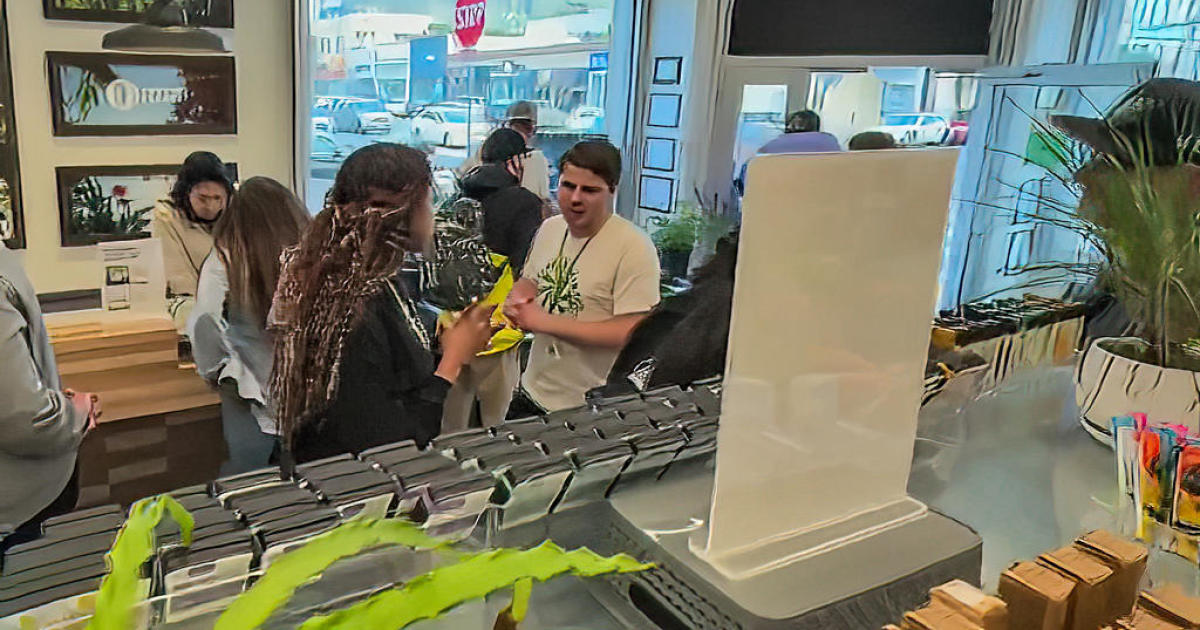Cisco Drops Flip Cam, Cuts 550 Jobs
SAN JOSE (CBS / CNN / AP) -- Cisco Systems Inc. announced Tuesday that it was exiting several consumer businesses, including most notably its Flip Video camera business, and laying off 550 employees.
The San Jose-based company decided to kill Flip, the most popular video camera in the U.S., just two years after it bought the startup that created it.
It appeared to be a case of a big company proving a poor custodian of a small one, even one that makes a hit product. Cisco never meaningfully integrated the Flip Video into its main business of making computer networking gear.
"There were many opportunities for Cisco to integrate Flip more into its vision of a networked world," said Ross Rubin, an electronics industry analyst at NPD Group. "The camcorders, for example, never even had Wi-Fi built into them."
"It was a brand the company had invested heavily in and could have leveraged for all kinds of consumer video experiences - video conferencing, security applications, et cetera," Rubin said.
Cisco didn't explain why it was shutting down the Flip unit rather than selling it, but the decision was part of a larger shakeup. After several quarters of disappointing results and challenges in its core business, Cisco is now reversing years of efforts at diversifying into consumer products.
The world's biggest maker of computer-networking gear said its new strategy was to serve most consumers indirectly through its business customers, rather than making products that shoppers buy straight from Cisco.
The announcement came just a week after CEO John Chambers sent a memo to employees vowing to take "bold steps" and make "tough decisions" to narrow the company's focus.
CNET Editor at Large Brian Cooley Comments:
Cisco, which is facing stronger competition from rivals in its core business, said it would realign its remaining consumer business to support four of its five key priorities—core routing, switching and services; collaboration; architectures and supporting video in the home.
As part of its new focus, Cisco was abandoning Flip, the digital video camera company it bought in March 2009 for nearly $600 million, leaving Flip Video users to lament the demise of a camera that broke new ground. It was inexpensive, pocketable and very easy to use, from shooting to editing and online sharing.
However, growing sales of smartphones with HD video cameras means the need for single-use devices is fading. Flip's sales last quarter grew 15% year-over-year, but Cisco had expected them to grow 30%.
Rather than sell the company off, Cisco is simply shutting down Flip. Most analysts agreed that was a smart decision, since it would be difficult to integrate the camera's technology into other companies' consumer electronics products. The product is a cult hit, but a tricky business fit.
"To some extent, Flip was never worth anything to begin with," said Alex Henderson, analyst at Miller, Tabak & Co. "If you look at that product, it's a fairly trivial solution and not easy to scale. It's not a business model most would like to be a part of, never mind pay a premium for."
Last year, the Flip Video was still the top-selling video camera in the U.S., with 26 percent of the market, according to IDC analyst Chris Chute. But that only amounted to 2.5 million units sold. Dedicated video cameras are small potatoes compared to digital still cameras and smart phones, both of which now shoot video.
The Flip Video is named after an arm that flips out of the camera body and lets the user connect it directly to a computer. The camera even contains video-editing software that fires up on the computer.
Top competitors in the pocket camcorder field, which could benefit from Flip Video's demise, are Eastman Kodak Co. and Samsung Electronics Co. Analysts expect Kodak to pick up much of Cisco's market share.
Cisco also made some other changes to its consumer line. Umi, a $599 box that turns a high-definition TV into a big videophone, will become part of Cisco's business telepresence product line. Though the device was critically praised, it was simply too expensive for most buyers to justify purchasing, and analysts said big box retailers didn't know how to sell it to consumers.
The company's popular Linksys and Valet Wi-Fi Internet routers will continue to be sold at retailers, but Cisco's Home Networking division, of which the routers are a part, will be "refocused for greater profitability,"
The new focus mostly represents an internal streamlining intended to make the business profitable, Cisco said. It doesn't expect the overhaul to affect consumers.
"We are making key, targeted moves as we align operations in support of our network-centric platform strategy," Chambers said. "As we move forward, our consumer efforts will focus on how we help our enterprise and service provider customers optimize and expand their offerings for consumers, and help ensure the network's ability to deliver on those offerings."
As a result of the changes, the company will eliminate 550 positions in the next three months - or less than 1 percent of its work force of about 73,000 - most of which will come from the Flip division. The networking giant said it would take up to a $300 million charge for the divestitures and layoffs in the third and fourth quarters.
Shares fell 5 cents to $17.42 in Tuesday trading and were close to their 52-week low of $16.97, hit a month ago. But analysts said investors would soon welcome the changes.
"This is positive because Cisco will now return to a focus on its core competencies," said Catharine Trebnick, analyst at Avian Securities. "The Flip acquisition was unusual from the start. Cisco said there would be a push-pull effect on the network, but that turned out to be a tough sell."
Others said Cisco should have left the consumer business a long time ago, and wished the company had gone further in its divestitures. Consumer product sales represent just 2% of Cisco's overall revenues, and they fell 15% last quarter.
"The Street never fell in love with Cisco's consumer strategy and the Flip product line was the epitome of this disdain," said Brian White, analyst at Ticonderoga Securities.
Analyst Simon Leopold at Morgan Keegan added that consumer products had been a drag on Cisco's results because they carry profit margins that are far lower than the big-ticket capital equipment the company sells to corporations and governments.
Tuesday's restructuring is part of the company's larger attempt to clarify its increasingly confusing role in the tech world. The company has struggled to grow in recent quarters, and Chambers' tone has been increasingly pessimistic.
"Our market is in transition, and our company is in transition," Chambers said. "And the time is right to define this transition for ourselves and our industry. It's time for focus."
He added: "We will address with surgical precision what we need to fix in our portfolio and what we need to better enable."
(Copyright 2011 by CBS San Francisco. All Rights Reserved. This material may not be published, broadcast, rewritten, or redistributed. Wire services may have contributed to this report.)



